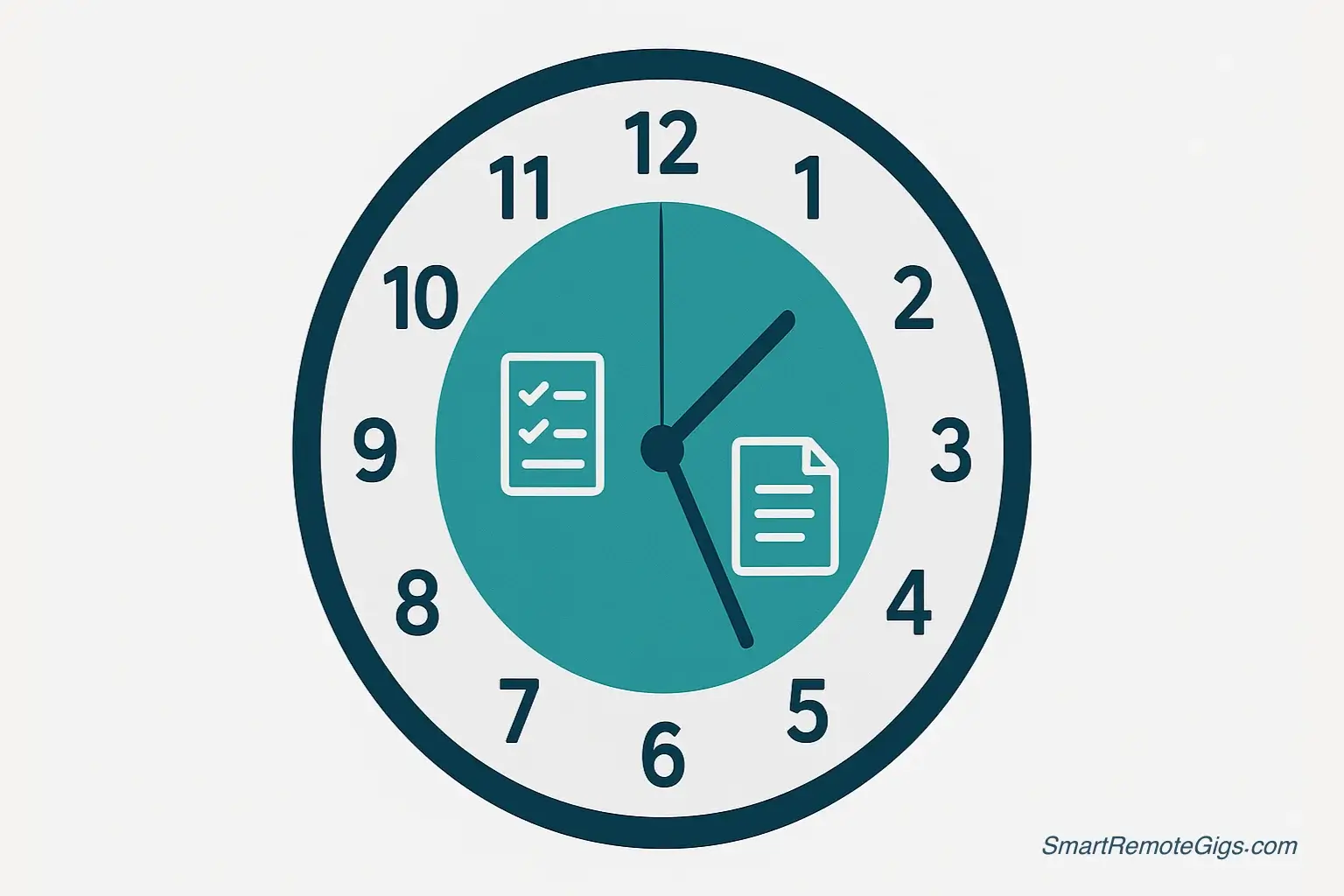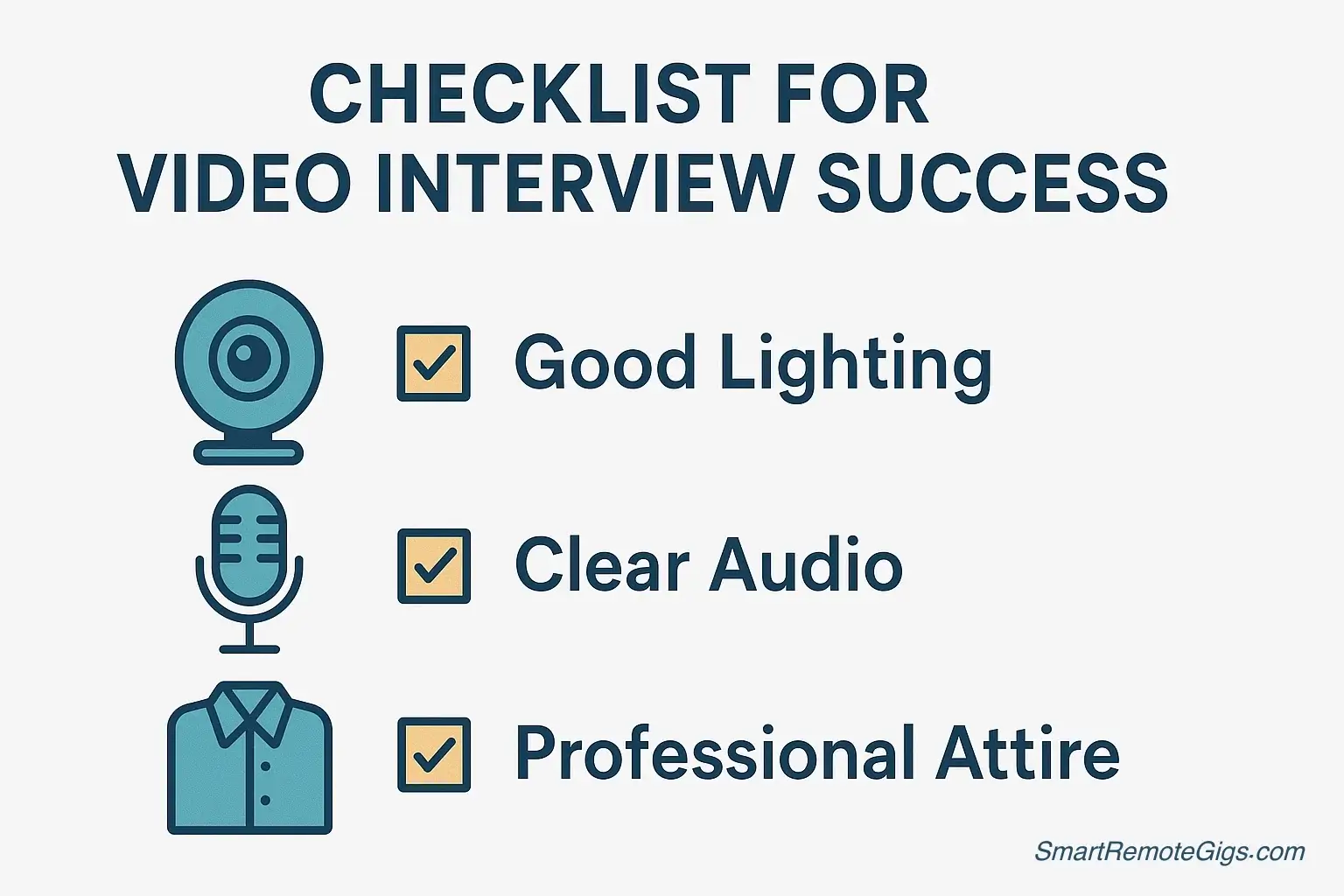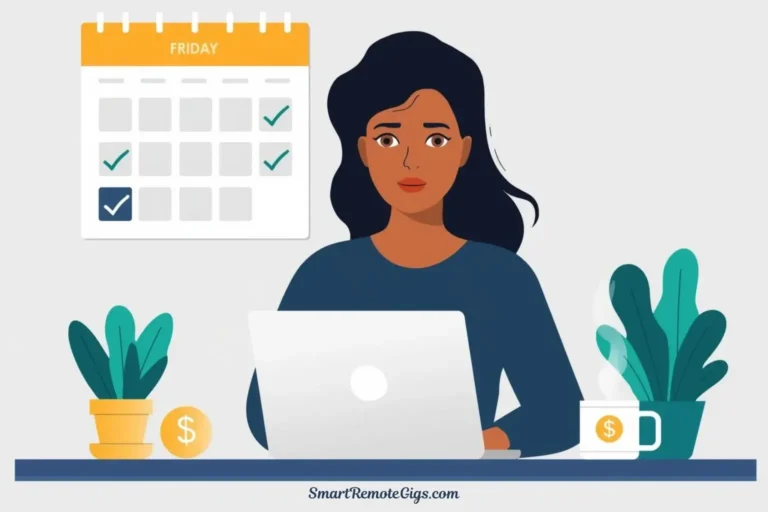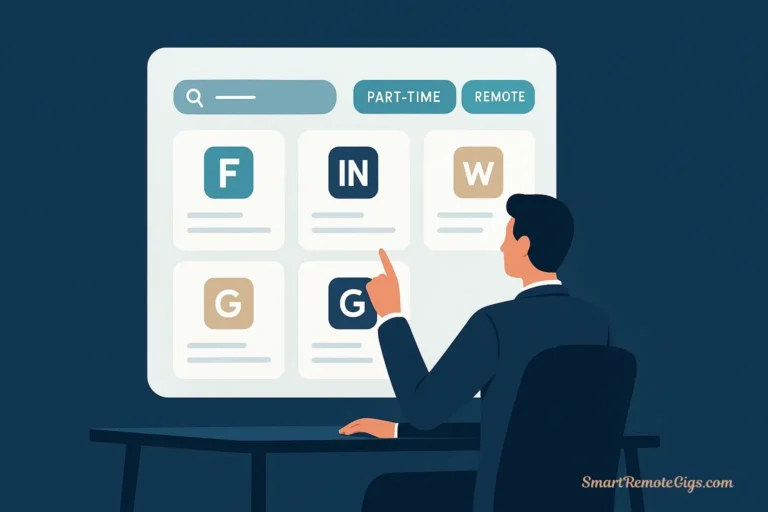You’ve landed the interview for that perfect part-time remote position—congratulations! Now comes the crucial next step: proving you’re not just qualified for the role, but specifically equipped to excel in a remote, part-time environment. This isn’t your typical office interview where a firm handshake and professional attire carry most of the weight.
Remote interviews are fundamentally different because employers are evaluating an entirely different set of skills. Beyond your technical qualifications, they’re assessing your ability to work independently, communicate effectively through digital channels, manage your time without supervision, and maintain productivity from your home environment. The stakes feel higher because there’s no opportunity for casual face-to-face interactions to build rapport or clarify misunderstandings.
The challenge many candidates face is not knowing what remote-specific questions to expect or how to frame their answers to address the unique concerns of remote hiring managers. Standard interview advice falls short because it doesn’t account for the specific anxieties employers have about remote work: Will this person stay motivated without direct oversight? Can they communicate proactively? Do they have the technical setup and discipline to succeed from home?
This guide eliminates that uncertainty by providing the exact questions you’re likely to encounter, the psychology behind why interviewers ask them, and proven sample answers that demonstrate remote work competency. By the end of this resource, you’ll walk into your interview with confidence, knowing exactly how to position yourself as the ideal remote employee.
Your Interview Success Roadmap
Master These Core Areas:
- Remote Work Skills: Demonstrate self-management and communication abilities
- Part-Time Fit: Show flexibility and efficiency in limited hours
- Technical Readiness: Prove your setup and troubleshooting capabilities
- Professional Presence: Excel in video interview dynamics
3 Mindsets to Master for Your Remote Interview
- Show, Don’t Tell: Instead of saying you’re “motivated,” share a system you use to stay motivated.
- Be Proactive: Demonstrate that you have backup plans for tech issues and strategies for over-communication.
- Prove Your Commitment: Frame your desire for part-time work as a deliberate, positive choice that enables you to deliver focused, high-quality work.
Remote-Specific Questions: Proving Your Independence

1. Proving Your Self-Discipline & Motivation
Why They’re Asking This: This is the #1 concern for remote employers. They want to know you have internal drive and won’t slack off when no one’s watching. They’re looking for evidence of self-discipline and intrinsic motivation.
How to Structure Your Answer:
- Share a specific system or routine you use to stay focused
- Mention accountability measures you create for yourself
- Give an example of when you successfully worked independently
How do you stay motivated and productive without direct supervision?
“I’ve found that structure is key to my productivity. I start each day by reviewing my priorities and time-blocking my schedule, which keeps me focused and accountable. I also set mini-deadlines throughout longer projects and track my progress daily. For example, in my previous role, I managed a three-week marketing campaign entirely remotely. I broke it into daily milestones, checked in with stakeholders twice weekly, and delivered everything two days early. I actually tend to be more productive at home because I can optimize my environment and eliminate office distractions.”
2. Showcasing Your Professional Work Environment
Why They’re Asking This: They need to know you have a legitimate workspace that won’t compromise your professionalism or productivity. They’re also assessing your preparation and commitment to remote work success.
How to Structure Your Answer:
- Describe your dedicated workspace and equipment
- Mention how you minimize distractions and interruptions
- Show you’ve thought through potential challenges and solutions
Describe your home office setup and how you ensure a professional work environment.
“I have a dedicated home office with a proper desk, ergonomic chair, and reliable high-speed internet. My setup includes a backup internet connection through my phone’s hotspot and a noise-canceling headset for calls. I’ve established clear boundaries with family members about my work hours and space. The room has good natural lighting and a professional background for video calls. I also have a separate phone line for work and use apps to block distracting websites during work hours. I treat this space as seriously as I would any office—when I’m here, I’m in full professional mode.”
3. Demonstrating Proactive Communication
Why They’re Asking This: Remote work requires more intentional communication than office work. They want to see that you understand this and have strategies for staying connected with team members and stakeholders.
How to Structure Your Answer:
- Demonstrate understanding of over-communication in remote settings
- Mention specific tools and methods you use
- Give an example of successful remote collaboration
How do you handle communication and collaboration when working remotely?
“I believe in proactive over-communication when working remotely. I send regular updates on project progress, ask clarifying questions upfront to avoid back-and-forth later, and always confirm receipt of important information. I’m comfortable with various communication tools—Slack for quick questions, email for detailed updates, and video calls for complex discussions. In my last remote project, I coordinated with five team members across three time zones. I created shared documents for real-time collaboration, sent daily progress reports, and scheduled weekly video check-ins. The project finished on time with excellent client feedback, specifically praising our communication throughout.”
4. Proving Your Technical Problem-Solving
Why They’re Asking This: They want to know you can problem-solve technical issues quickly and have contingency plans. Technical failures can be more disruptive in remote work, so they need confidence in your ability to handle them professionally.
How to Structure Your Answer:
- Show you have backup plans and troubleshooting skills
- Demonstrate calm problem-solving under pressure
- Mention preventive measures you take
What would you do if you experienced technical difficulties during an important call or while working on a deadline?
“I always have backup plans in place. For important calls, I test my technology 15 minutes beforehand and have my phone ready as a backup connection. If something fails during a call, I’d immediately switch to my phone, text the other participants about the issue, and rejoin within two minutes. For work deadlines, I have a mobile hotspot backup for internet issues and keep important files synced to the cloud so I can access them from any device. I also do basic troubleshooting myself—restarting devices, checking connections—before escalating to IT support. The key is staying calm and communicating quickly about any delays while I resolve the issue.”
Part-Time Specific Questions: Demonstrating Efficiency

5. Showcasing Efficiency in Limited Hours
Why They’re Asking This: They need to know you can be highly efficient and focus on what matters most when you have fewer hours than full-time employees. They want evidence of strong time management and priority-setting skills.
How to Structure Your Answer:
- Explain your method for identifying and focusing on high-priority tasks
- Mention tools or systems you use for time management
- Give an example of successfully managing competing priorities
How will you manage your time and prioritize tasks with limited working hours?
“With limited hours, I focus on high-impact activities first. I use the Eisenhower Matrix to categorize tasks by urgency and importance, always tackling important-urgent items first. At the start of each work session, I identify my top 3 priorities and time-block my schedule around them. I also communicate closely with my supervisor about priorities to ensure I’m focused on what matters most to the team. In my previous part-time role, I managed social media for three clients in just 20 hours per week by batching similar tasks, using scheduling tools, and focusing on content that drove the best engagement metrics. I actually improved their engagement rates by 35% because I could focus entirely on high-value activities.”
6. Defining Your Flexibility & Boundaries
Why They’re Asking This: They want to understand your availability boundaries while assessing whether you can occasionally accommodate business needs. They’re looking for someone who’s reliable but also reasonable about flexibility.
How to Structure Your Answer:
- Show you’re flexible within reason and with advance notice
- Set clear boundaries about your limitations
- Demonstrate understanding of business needs
Are you available for occasional additional hours or schedule flexibility when needed?
“I chose part-time work for specific personal reasons, but I understand that business needs can vary. With advance notice, I’m usually available for an extra hour or two during busy periods, and I can sometimes adjust my schedule within the same week if needed. For example, if a project deadline moves up, I could work an extra few hours Tuesday-Wednesday if I knew by the previous Friday. However, I do need to maintain my overall part-time commitment for personal obligations. I find that clear communication about busy periods helps me prepare and support the team when you need it most, while ensuring I can consistently deliver my best work.”
7. Proving Your Commitment to Quality
Why They’re Asking This: They’re concerned that part-time workers might rush through tasks or deliver lower quality work due to time constraints. They want to see that you have systems for maintaining high standards efficiently.
How to Structure Your Answer:
- Explain your approach to getting things right the first time
- Mention specific quality control measures you use
- Show how efficiency and quality can coexist
How do you ensure quality work when you have less time to review and perfect everything?
“I’ve learned that quality comes from good processes, not just extra time. I spend a few extra minutes upfront clarifying requirements and expectations, which prevents costly revisions later. I also use checklists for recurring tasks to ensure consistency and build in brief review periods before submitting work. For writing projects, I use tools like Grammarly for immediate feedback and read everything aloud to catch errors. In my previous role, my error rate was actually lower than some full-time colleagues because I had to be more intentional about my process. I’d rather take 10 minutes to double-check something than spend an hour fixing mistakes later.”
General Skill Questions: Showcasing Remote Competency

8. Crafting Your Remote Work Narrative
Why They’re Asking This: This classic opener helps them understand your background, but in a remote context, they’re particularly listening for communication skills, self-awareness, and how you present yourself professionally in a virtual setting.
How to Structure Your Answer:
- Connect your background to remote work success
- Highlight relevant skills and achievements
- Show enthusiasm for this specific opportunity
Tell me about yourself.
“I’m a marketing professional with five years of experience, including two years working remotely. I discovered I’m most productive in a focused home environment where I can dive deep into projects without office distractions. My background includes managing social media campaigns, content creation, and client communications—all skills I’ve successfully applied in remote settings. I’m particularly drawn to part-time remote work because it allows me to deliver my best work while maintaining the flexibility that helps me stay energized and creative. I’m excited about this position because it combines my marketing expertise with a company culture that values results over hours worked.”
9. Demonstrating Remote Conflict Resolution
Why They’re Asking This: Remote work can make conflict resolution more challenging. They want to see that you can navigate interpersonal issues professionally through digital communication and maintain working relationships.
How to Structure Your Answer:
- Choose an example that shows problem-solving and professionalism
- Highlight your communication and conflict resolution skills
- Show the positive outcome of your approach
Tell me about a time you had to handle a difficult situation or colleague while working remotely.
“In my last remote role, I had a colleague who consistently missed shared deadlines, which affected my ability to complete dependent tasks. Rather than letting frustration build, I scheduled a private video call to understand their challenges. I learned they were overwhelmed with their workload and struggling with time management. Instead of escalating to our manager immediately, I offered to help them break down their tasks and suggested tools that had helped me stay organized. We also established a check-in system where they’d update me on progress mid-week. This approach improved our working relationship and project timelines. Our manager later praised our collaboration, and my colleague thanked me for being supportive rather than confrontational.”
10. Showing Your Receptiveness to Feedback
Why They’re Asking This: Virtual feedback can feel more impersonal or harsh than face-to-face conversations. They want to know you can receive feedback professionally and use it constructively, even without the benefit of body language and in-person rapport.
How to Structure Your Answer:
- Show you view feedback as valuable for improvement
- Demonstrate professional response to criticism
- Mention how you follow up on feedback
How do you handle feedback and criticism when it’s delivered virtually?
“I actually appreciate written feedback because it gives me time to process it thoughtfully rather than react immediately. When I receive criticism virtually, I first thank the person for taking the time to help me improve, then ask clarifying questions if needed to ensure I understand completely. I take notes and create an action plan for addressing the feedback. For example, when a supervisor pointed out that my project updates were too brief, I asked for examples of the level of detail they wanted and started using a standard template that included progress, challenges, and next steps. I followed up two weeks later to confirm the new format was meeting their needs. I find that being proactive about implementing feedback actually strengthens working relationships, even when we can’t discuss it face-to-face.”
11. Explaining Your Motivation for Part-Time Work
Why They’re Asking This: They want to understand your motivation for part-time work and ensure you’re not just settling for fewer hours while looking for something full-time. They need confidence in your long-term commitment.
How to Structure Your Answer:
- Give an honest, positive reason for choosing part-time work
- Show this is a deliberate choice, not a compromise
- Demonstrate commitment to excellence regardless of hours
Why do you want to work part-time, and how do we know you’re committed to this role?
“I chose part-time work because I’m currently pursuing my master’s degree, and I want to give both my studies and my professional work the attention they deserve rather than doing either one half-heartedly. Part-time work actually allows me to be more focused and energetic during my working hours. I’m committed to this role because it aligns perfectly with my career goals in marketing, and I value the opportunity to contribute to a team while continuing my education. I’m not looking for full-time work right now—I specifically sought out this part-time position because it offers the perfect balance. You can expect the same dedication and quality from me in 20 hours that you’d get from someone working 40, because I’m here by choice and excited about the work.”
12. Asking Insightful Questions
Why They’re Asking This: This tests your genuine interest in the role and company, plus your preparation level. In remote interviews, thoughtful questions are especially important for building connection and showing engagement.
How to Structure Your Answer:
- Ask about remote work culture and communication norms
- Show interest in growth and success in the role
- Demonstrate you’ve researched the company
Do you have any questions for us?
“Yes, I do have several questions. First, how does the team typically collaborate on projects, and what communication tools do you rely on most? I’d also love to understand what success looks like in this role after 90 days and one year. I noticed on your website that the company is expanding into new markets—how does this role contribute to those growth initiatives? Finally, what do you enjoy most about the remote work culture here? I’m excited about the possibility of joining the team and want to make sure I understand how to contribute most effectively from day one.”
Bonus: Nailing the Video Interview

Before the Interview: Your Tech Check
- Check your internet connection speed and stability
- Test audio and video quality in the meeting platform (Zoom or Google Meet)
- Ensure your device is fully charged with backup power available
- Close unnecessary applications to optimize performance
During the Interview: Professional Presence
- Choose a quiet, well-lit space with a clean, professional background
- Dress professionally from head to toe (you never know if you’ll need to stand up)
- Position your camera at eye level to maintain natural eye contact
- Look at the camera, not the screen, when speaking for better connection
On the Day: Logistics & Etiquette
- Join the meeting 2-3 minutes early, but not more (shows punctuality without seeming overeager)
- Have water available but keep it off-screen
- Keep a notepad handy for jotting down key points or questions
- Practice your body language—sit up straight and use natural gestures
Conclusion: You’re Ready for This
Remote interviews might feel different from traditional face-to-face meetings, but they’re also an opportunity to demonstrate the exact skills that make remote work successful: clear communication, technical competence, self-motivation, and professionalism. The questions in this guide aren’t meant to trip you up—they’re designed to help you showcase your remote work readiness.
Remember, you were selected for this interview because your qualifications already impressed them. Now it’s about demonstrating that you can apply those skills effectively in a remote, part-time environment. The sample answers provided here aren’t scripts to memorize, but frameworks to help you structure your own authentic responses based on your experiences.
Walk into your interview with confidence, knowing that you’re prepared for the questions that matter most. Your combination of skills, preparation, and genuine enthusiasm for remote work will set you apart from candidates who haven’t done this level of thoughtful preparation.
Step 1: Get the Interview
A great interview starts with a resume that gets you noticed.
➡️ Read Now: How to Write a Remote Resume With No ExperienceStep 2: Find More Opportunities
Apply your new interview skills to the best roles available.
➡️ Read Now: Our Ultimate Guide to 15+ Part-Time Remote Jobs
Your dream remote job is just one great interview away. You’ve got this!







